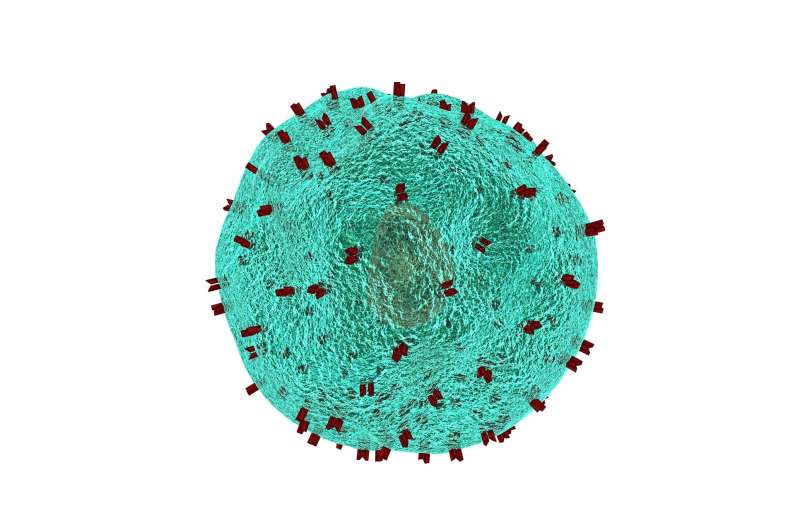Double NHS decision for CAR T cell immunotherapy in Scotland

Two cancer immunotherapies have been reviewed for NHS use in Scotland.
One CAR T cell therapy, called tisagenlecleucel (Kymriah), was approved for some children and young adults with leukaemia. But a second, called axicabtagene ciloleucel (Yescarta), was rejected due to uncertainty about the treatment's long-term benefits.
Yescarta is used to treat some types of aggressive non-Hodgkin lymphoma and was approved for use on the NHS in England in October 2018.
Both therapies are part of a new group of immune-boosting treatments, which take the patient's own immune cells and modify them in a lab.
The modified cells are then returned to the patient's bloodstream where they're primed to recognise and attack cancer cells.
Green light for childhood leukaemia
The Scottish Medicines Consortium (SMC) gave the green light for Kymriah to be used for those aged 25 and under with acute lymphoblastic leukaemia (ALL) whose cancer has either not responded or come back after standard treatments.
The treatment was reviewed after 8 in 10 patients saw their disease disappear completely three months after treatment with Kymriah in a clinical trial. The trial included 75 patients and 3 in 4 (76%) were alive a year after treatment. But the immunotherapy led to serious side effects in 7 in 10 patients.
The drug was approved for use on the NHS in England in autumn 2018 and the first patient received the treatment in January 2019.
SMC chairman, Dr. Alan MacDonald, hoped the decision would benefit children and young adults with ALL and their families and carers.
"Acute lymphoblastic lymphoma is a very rare form of leukaemia which can progress quickly and there are currently very few treatment options for those whose condition has relapsed or not responded," he added.
'Disappointing news' for patients with non-Hodgkin lymphoma
But in its latest round of drug announcements, the SMC rejected a second CAR T cell therapy, Yescarta, for some adults with aggressive non-Hodgkin lymphoma.
A clinical trial of 111 patients found that half treated with Yescarta saw their disease disappear completely six months after treatment. But the drug led to serious side effects in over half of patients.
Yescarta was recommended for use by NHS England in 2018 but was rejected by the SMC due to uncertainty "around its long-term benefits and cost-effectiveness."
Gregor McNie, Cancer Research UK's head of external relations in Scotland, called the news disappointing for patients but hoped the drug would be made available in the future.
"Yescarta is an incredibly complex and advanced treatment," said McNie.
He added that had it been approved, it would have provided a new treatment option for patients with an aggressive type of blood cancer who might have few other options available.
"CAR T cell therapies have shown great promise in some patients, so we hope SMC and the drugs company can work together to make Yescarta available to patients in Scotland in the future," he said.
The company that make Yescarta intend to resubmit the treatment for further review, according to the SMC website.
















